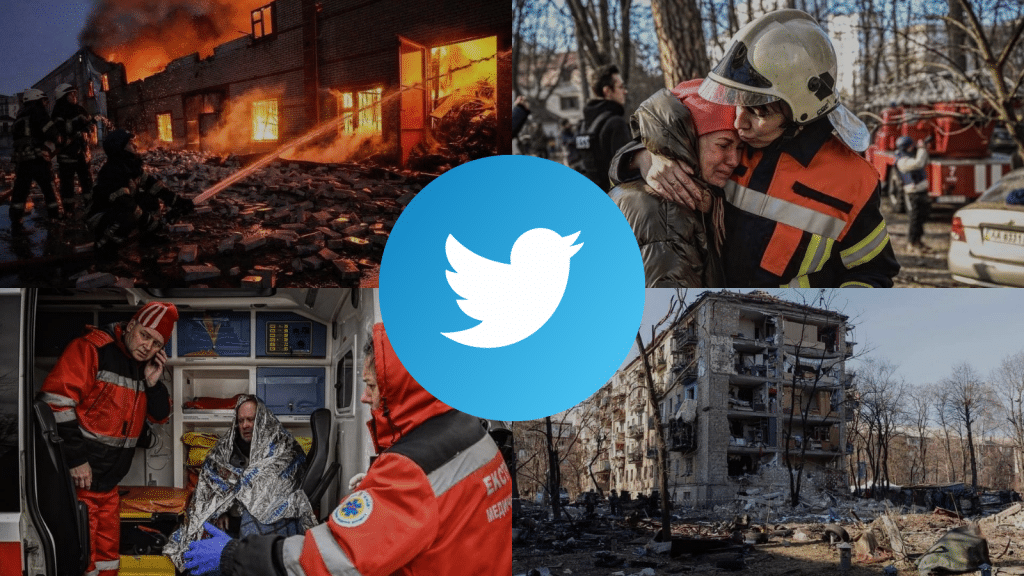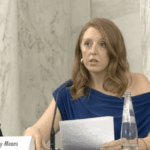10 must-read Twitter threads on the war in Ukraine
By Dawn Stover | March 21, 2022
 Ukraine Ministry of Defense @DefenceU/Twitter
Ukraine Ministry of Defense @DefenceU/Twitter
Here at the Bulletin, we talk and correspond daily with experts on nuclear weapons, nuclear power plants, biosecurity, information warfare, and other risks that loom large in Russia’s war on Ukraine. Our breaking Ukraine coverage includes many of these experts’ analyses and opinions.
The rapidity with which events have unfolded in Ukraine, and the intense public interest in what is happening there, have prompted many experts to post their thoughts on social media—often as a Twitter thread responding to the latest news.
If you follow any of the Bulletin’s editors on Twitter, you know that we regularly retweet threads we find particularly interesting. We don’t have room to share them all here, but what follows is a sampling of some thoughtful threads on Ukraine.
Would Russia use nuclear weapons in Ukraine? When people kept asking him that question, nuclear historian Alex Wellerstein wrote a Twitter thread about it. He also explains what might happen if Russia did use a single, low-yield nuclear weapon—and why he’s not staying up all night worrying about this possibility.
https://twitter.com/wellerstein/status/1500660763282874372
Andrei Kozyrev, a former foreign minister of Russia, also offered up an opinion on whether Putin would use nuclear weapons. Kozyrev says there are three beliefs that led Putin to make a “horrific, but not irrational” decision to invade Ukraine, including confidence in a modernized Russian military.
2. Russian military. The Kremlin spent the last 20 years trying to modernize its military. Much of that budget was stolen and spent on mega-yachts in Cyprus. But as a military advisor you cannot report that to the President. So they reported lies to him instead. Potemkin military
— Andrei V Kozyrev (@andreivkozyrev) March 6, 2022
Will China take Russia’s side? Amy Zegart, a senior fellow at the Hoover Institution, wrote a short thread about the Biden administration’s strategy of disclosing intelligence, which she says is making it harder for China to conceal cooperation with Russia.
1/5. The Biden Admin's unfolding #intelligence strategy was front and center in the #Xi-Biden call today. The essence of the strategy, I think, is revealing to coerce. Disclosing secrets may not stop all bad actions, but it can shape adversaries' behavior to our advantage.
— Amy Zegart (@AmyZegart) March 19, 2022
Andrew Small, a senior transatlantic fellow at the German Marshall Fund of the United States, says China could act as a mediator—but explains why that probably would not be helpful.
The fact that China clearly supports Russia would not preclude them taking a mediation role. Beijing typically does this precisely when it’s sympathetic to one side but thinks they’ve gone too far. But there are other reasons I doubt this will happen 1/ https://t.co/kh18gCRDOX
— Andrew Small (@ajwsmall) March 7, 2022
The biolabs conspiracy theory. The Putin regime has thrown a spaghetti of false claims against the wall, but the allegation that the United States was manufacturing biological weapons in Ukraine is the one that seems to be sticking. Adam Rawnsley, a senior researcher at the Daily Beast, explains the history.
I'm sure youve all seen that Russian state media/fanboi media outlets are now pushing a nonsense conspiracy theory about biolabs in Ukraine cooking up WMD in a big spooky beaker. Hesitant to raise it but to my mind it shows how half-assed the influence ops campaign has been
— Adam Rawnsley (@arawnsley) March 7, 2022
Marc Owen Jones, an assistant professor at Hamad bin Khalifa University and an expert on digital authoritarianism in the Middle East, analyzes the sources of the “biolabs” narrative. He periodically issues a “weather update” about which accounts are spreading deception (he prefers that term over “disinformation”) and what they are saying, and also tweets about the disinformation synergy between Russian and Chinese official accounts.
🧵1/ This is an analysis of all accounts using the terms '#Ukraine' and 'bio labs'. I wanted to see which accounts were pushing this narrative the most, & which were the most influential. This is an analysis of around 20k Twitter interactions from approx 17k unique accounts pic.twitter.com/Rbp9GYxh4q
— Marc Owen Jones (@marcowenjones) March 10, 2022
Nuclear infrastructure. Nickolas Roth, senior director on the Nuclear Threat Initiative’s Nuclear Materials Security Program team, writes about the dangers of all-out war in a country with nuclear power plants—and how to reduce the risks in Ukraine.
Never has there been an all-out war in a country with such a significant nuclear infrastructure. Russia’s attack is a violation of international law. Russia must cease targeting and attacking nuclear facilities and allow Ukraine to safely operate its nuclear facilities.
— Nickolas Roth (@Nickolas_Roth) March 4, 2022
Denial of agency. Mariana Budjeryn, a research associate with the Project on Managing the Atom at the Belfer Center, writes about how Ukraine’s response to Russia’s attack demonstrates agency, even against a county with nuclear weapons. Nuclear deterrence has been exposed as a “worthless bluff,” she says.
Ukraine's fierce resistance not only thwarted Putin's war plans, but exposed the blindness and arrogance of great power thinking in Western capitals and ivory towers, where 'smaller' nations are perennially sidelined and viewed as lacking agency. 2/8
— Mariana Budjeryn (@mbudjeryn) March 6, 2022
Gaukhar Mukhatzhanova, director of the International Organizations and Nonproliferation Program of the James Martin Center for Nonproliferation Studies, pushes back against the notion that countries in Russia’s “backyard” don’t have a right to choose which alliance they wish to join.
The denial of agency aspect has been really bothering me in recent discussions of whether Russia's actions are "about NATO," suggesting somehow that Russia has a *right* to not just pout but act aggressively b/c NATO is "enlarging to its borders." 1/ https://t.co/ai5EyzQI6D
— Gaukhar Mukhatzhanova (@GaukharM) March 7, 2022
Thinking about nuclear war. Finally, an important reminder from Madison Arnold-Scerbo, campaign organizer with the Global Security Program at the Union of Concerned Scientists: Take care of yourself.
As a nuclear weapons abolition organizer, I can spend basically my entire workday thinking about #nuclearwar. Here is how I take care of my mental health, plus some tips for folks who might be experiencing extra stress, worry, and anxiety right now🧵
— Madison Rose (Arnold-Scerbo) (@MadisonUCS) March 7, 2022
Have you read a particularly great Twitter thread on the Ukraine crisis lately? Please let us know about it in the comments section below.
Together, we make the world safer.
The Bulletin elevates expert voices above the noise. But as an independent nonprofit organization, our operations depend on the support of readers like you. Help us continue to deliver quality journalism that holds leaders accountable. Your support of our work at any level is important. In return, we promise our coverage will be understandable, influential, vigilant, solution-oriented, and fair-minded. Together we can make a difference.
Keywords: Twitter, Ukraine, biolabs, nuclear war
Topics: Biosecurity, Nuclear Energy, Nuclear Weapons















